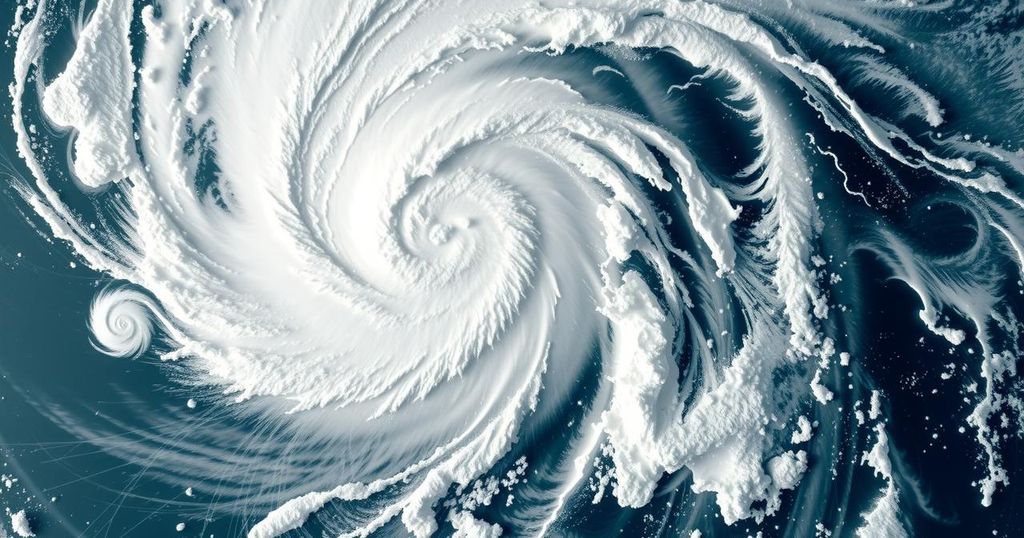Weather
World news
AFRICA, CHIDO, CLIMATE, EUROPE, FRENCH INDIAN OCEAN, INDIAN OCEAN, MALAWI, MANICA, MAYOTTE, MOZAMBIQUE, MOZAMBIQUE CHANNEL, NATURAL DISASTER, NATURAL DISASTERS, PAUL SAMASUMO, PEMBA, POWER OUTAGES, RAIN, RELIEFWEB, SADC, SOFALA, SOUTHERN AFRICA, SOUTHERN AFRICAN DEVELOPMENT COMMUNITY, TETE, TETE PROVINCE, VATICAN CITY, VATICAN NEWS, ZIMBABWE
Li Chen
0 Comments
Tropical Cyclone Chido Causes Major Impact in Southern Africa
Tropical Cyclone Chido made landfall in Mozambique on December 15, bringing winds up to 80 km/h and over 250 mm of rain. Destruction includes more than 5,800 homes and partial damage to classrooms, affecting 2,500 families. Communication issues have arisen due to power outages. Chido previously struck Mayotte as a Category 4 storm and continues toward Malawi and Zimbabwe.
Tropical Cyclone Chido has significantly impacted Southern Africa since it made landfall in Mozambique on December 15, bringing intense winds, heavy rainfall exceeding 250 mm in 24 hours, and thunderstorms. The Southern African Development Community has reported that over 5,800 homes have been destroyed, and 41 classrooms were partially damaged, affecting approximately 2,500 families. As communication infrastructure suffers from power outages and damaged lines, residents are conserving battery for critical communication. Following its assault on Mozambique, Chido caused widespread destruction in Mayotte before advancing into Malawi. As of December 16, the cyclone’s intensity remains at the minimal stage of a moderate tropical storm, with additional rainfall expected as it moves through regions of Mozambique and potentially into Zimbabwe by December 17.
Tropical cyclones are common in Southern Africa, particularly during the southern hemisphere’s cyclone season from November to April. Cyclone Chido epitomizes the devastating effects of such natural events, combining high winds and excessive rainfall that not only threaten lives but also lead to substantial economic loss and infrastructural damage. The SADC plays a crucial role in assessing and responding to the impacts of cyclones, which often result in widespread humanitarian crises, requiring urgent relief efforts and effective communication among affected communities. Understanding the trajectory and potential impacts of Cyclone Chido is critical for timely interventions and protective measures for vulnerable populations in affected countries.
In summary, Tropical Cyclone Chido has caused significant destruction in Southern Africa, particularly in Mozambique and its neighboring regions. With the cyclonic storm moving towards Malawi and Zimbabwe, it is vital for residents to remain vigilant and informed through reliable weather services to mitigate further risks. The ongoing assessment of damages and provision of relief will be paramount as the situation unfolds.
Original Source: www.vaticannews.va




Post Comment